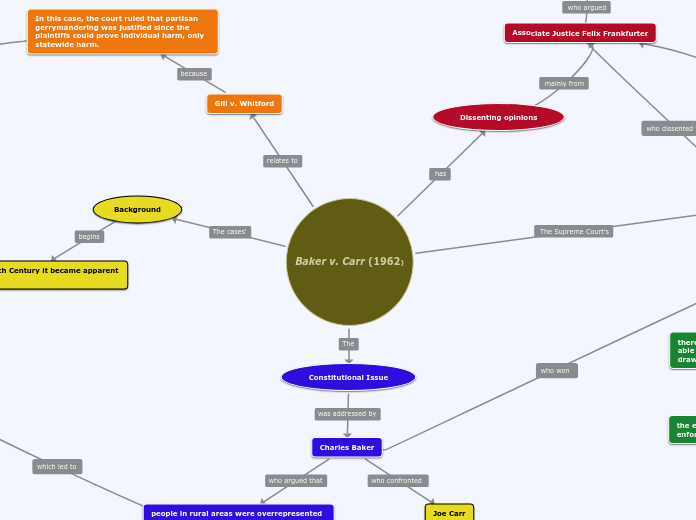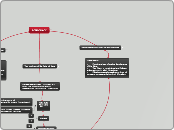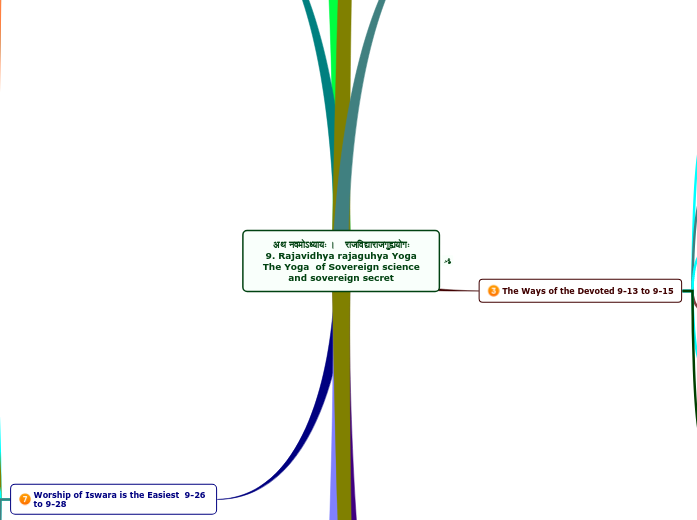Baker v. Carr (1962)
Dissenting opinions
Associate Justice Felix Frankfurter
that the Court ignored previous precedent and history regarding
Separation of powers between the legislatures and the courts
Judicial Restraint
Gill v. Whitford
In this case, the court ruled that partisan gerrymandering was justified since the plaintiffs could prove individual harm, only statewide harm.
Decision
Baker in a 6-2 decision
there is no reason a court should not be able to determine the validity of currently drawn districts
the equal protection clause is judicially enforceable.
Constitutional Issue
Charles Baker
Joe Carr
was not directly responsible for such redistricting
was eventually sued ex officio as Secretary of Tennessee
having responsibility of conducting elections and distributing district maps
people in rural areas were overrepresented compared to urban areas
offsetting the Fourteenth amendment
voting practices declared by states
accommodates selective incorporation
form a bridge between the 14th amendment and the Bill of Rights
the First amendment, regarding "one man, one vote"
providing equality of opportunity regarding a voice in government
The Free Speech Clause
the general public to question justiciable matters,
Essential Questions
depicts an ideal impact the Supreme Court has on the public
guarantees civil liberties away from government
ridiculing any form of infringement
contradicts the importance of embracing the foundations of the Constitution
Shelby County v. Holder (2013)
preclearance is required by the federal government
a properly mandated system
Federalism
to practice any form of redistricting
not partial to racial gerrymandering
a fine line between racial and partisan gerrymandering
The Equal Protections Clause
Background
In the Mid-20th Century it became apparent that
many residents migrated from rural areas to cities
a district with 200 residents would have the same representation as a district with 2000 residents
Federal courts chose not to hear any cases pertaining to redistricting as they did not want to interfere with a power directly stated within the constitution.









